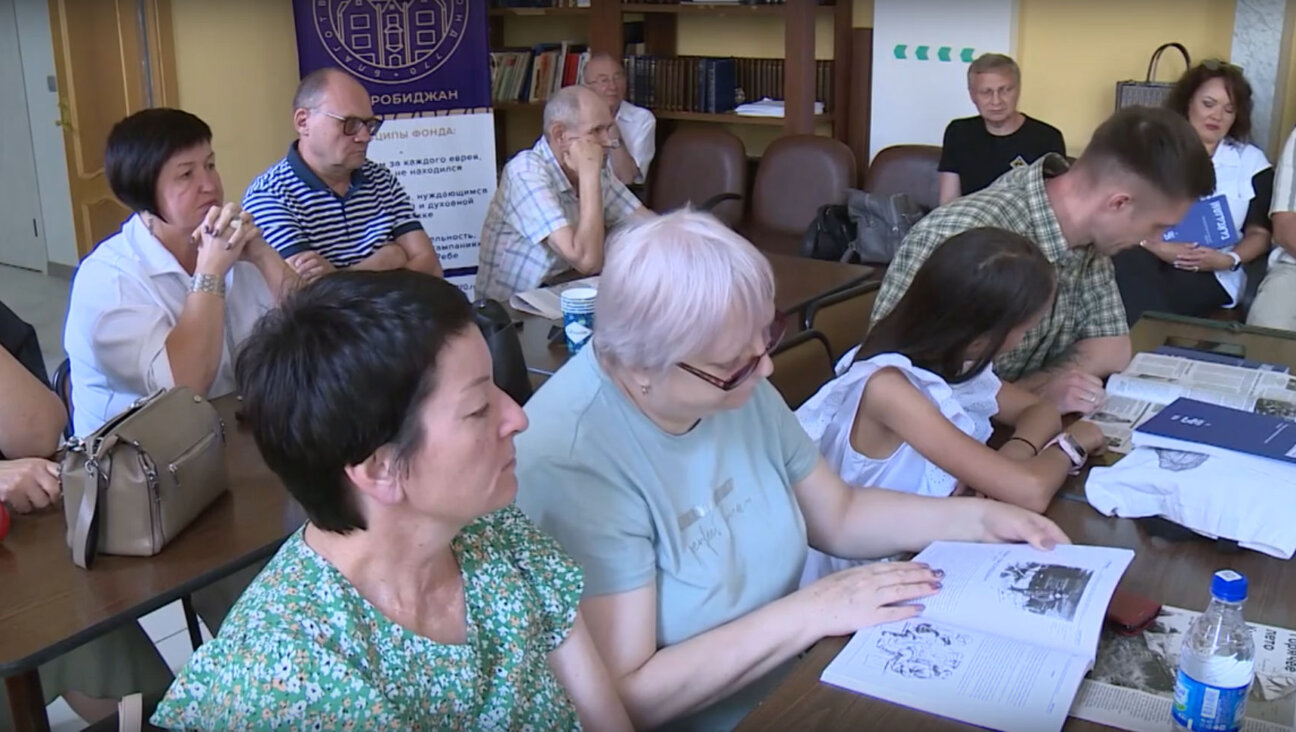PHOTO ESSAY: At Israeli Detention Center, African Refugees Hold a Seder

Image by Anna Loshkin
Why was this Passover seder, held about a week before the holiday started, different from all other seders? For starters, it took place outside, under the harsh desert sun, and most of the attendees weren’t even Jewish. At this gathering, the men who recalled the exodus from Egypt were telling their own stories of flight. They were African refugees, most of them Eritreans escaping the brutal dictatorship of President Isaias Afwerki, and Sudanese running from the civil war that rages in their country. They and three thousand others are currently held in Holot Detention Center, a prison-like compound in the Negev desert, on the Egyptian border.
Israel built this “open” facility in 2013 in order to contain the asylum seekers who had come into the country through the Egyptian border over the last decade. There are currently around 43,000 African asylum seekers in Israel, who the government often refers to as “infiltrators” and who have been victims of forced deportation, harassment and intimidation campaigns. Less than one percent of those who have appealed for asylum has received it.
The Holot facility is now at full capacity, housing more than 3,200 asylum seekers. For them, the interfaith Passover seder in the dusty field outside of the detention center is of particular significance. The event, jointly organized by Rabbis for Human Rights and Right Now: Advocates for Asylum Seekers in Israel, is the third consecutive such seder held at Holot. It drew visitors and volunteers from across Israel. Although the seder was far from traditional, it culminated with a more conventional wish for redemption: Rather than calling for “next year in Jerusalem,” the Holot inmates called for the closure of the detention center.
Detainees and visitors prepare the food table.

Image by Anna Loshkin
Asylum seekers and visitors wait for the Seder to begin.

Image by Anna Loshkin
Rabbi Arik Ascherman passes grape juice to an asylum seeker at the start of the Seder.

Image by Anna Loshkin
Rabbi Ascherman and Ilave Argay, an asylum seeker from Eritrea, address the crowd and explain the significance of the holiday.

Image by Anna Loshkin
Asylum seekers hold up pieces of matzah during the Seder.

Image by Anna Loshkin
A visitor plays guitar and sings with asylum seekers.

Image by Anna Loshkin
Elliot Glassenberg, an organizer of the Seder, hugs Afwerki, an asylum seeker from Erirea detained at Holot.

Image by Anna Loshkin
Asylum seekers raise their hands at the conclusion of the Seder, calling for the closure of the detention center.

Image by Anna Loshkin
A message from our CEO & publisher Rachel Fishman Feddersen

I hope you appreciated this article. Before you go, I’d like to ask you to please support the Forward’s award-winning, nonprofit journalism during this critical time.
At a time when other newsrooms are closing or cutting back, the Forward has removed its paywall and invested additional resources to report on the ground from Israel and around the U.S. on the impact of the war, rising antisemitism and polarized discourse.
Readers like you make it all possible. Support our work by becoming a Forward Member and connect with our journalism and your community.
— Rachel Fishman Feddersen, Publisher and CEO























